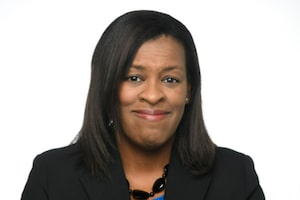
Senior businessman collaborating with younger managerEmirMemedovski/iStockPhoto / Getty Images
Sign up for the Globe Advisor weekly newsletter for professional financial advisors on our newsletter sign-up page. Get exclusive investment industry news and insights, the week’s top headlines, and what you and your clients need to know.
Two dealer firms going through the Canadian Investment Regulatory Organization’s (CIRO) dual registration framework commend the new streamlined process for its advisors but add a few issues still need to be ironed out.
Dual registration allows a dealer firm to hold both securities and mutual fund licences and employ both types of advisors under one legal entity. Previously, firms needed separate legal entities to be registered under the then Mutual Fund Dealers Association (MFDA) and Investment Industry Regulatory Organization of Canada (IIROC). Now that MFDA and IIROC merged to create CIRO, the new self-regulatory organization has streamlined the process.
Gillian Kunza, co-founder and chief executive officer of Designed Securities Ltd. in Toronto, says her dealer, which has more than $1-billion in assets and close to 40 advisors, was the first to be completely approved for dual registration in March.
“Because we’re a small dealer, it wasn’t complicated for us to decide to unwind and come together as one entity,” Ms. Kunza says. “It seemed like the better decision from a business standpoint to be under one rulebook and serve both communities of advisors under one roof.”
Julie Gallagher, senior vice-president and chief compliance officer at iA Private Wealth Inc., says the dealer applied for dual registration last January and at this point is almost halfway through the process.
Before the merger, if a mutual fund advisor wanted to move to an investment dealer, it involved a lengthy 270-day program and upgrading to new proficiency guidelines required of an investment registered representative, Ms. Gallagher says.
With CIRO’s new dual registration structure, there’s a new registration category specific to a mutual fund advisor, which eliminates the red tape of proficiency upgrades.
“They can continue to serve their clients same as before … as if they never joined a different dealer,” Ms. Gallagher says. “There’s no additional supervision.”
A more efficient and less time-consuming process is beneficial to those advisor teams that want to bring new advisors on board, she adds.
“Having a team member go through full proficiency guidelines was [too much]” for the role the new employee may be serving, Ms. Gallagher says. “Firms have asked for many years to simplify the process.”
These are ‘interim rules’
While advisor processes have been streamlined, Ms. Gallagher says the two dealer entities, iA Private Wealth (securities arm) and Investia Financial Services (mutual fund and segregated fund business), will not merge at this point. She adds Investia continues to grow and has a strong brand which the parent firm wants to keep.
“We only know the interim rules and not what will be in the final rulebook and the permanent phase,” she says.
“Without that information, we won’t exactly know what a merger on the corporate level would look like. And while the two dealers haven’t merged businesses, we do combine our efforts to ensure the needs of our clients are well served.”
Meanwhile, Ms. Kunza says her dealer is currently figuring out how things such as continuing education (CE) work under the new process. The mutual funds and securities licencing requirements have different CE cycles, she notes.
“Dealers have to recognize that once we’re approved, there’s still work to do and collaboration,” she says. “Protocol is still not established for everything, and it’s just impossible in an application process to walk through everything. Expect there will be 20 per cent of things that you’re not aware of.”
‘Have they thought about everything?’
She advises dealers still making their way through dual registration to get involved actively in the decision-making process.
“If regulators give you a recommendation or guidance, it’s because it’s what seems to be ideal,” Ms. Kunza says. “If you don’t challenge, there could be a missed opportunity to come up with something better and teach the regulators a different perspective.”
Regulators are open to the feedback because they want to do a great job for this industry, she adds.
“That only comes with an open dialogue, not just them telling you what to do and you doing it,” she says.
Ms. Gallagher concurs, describing the collaboration with the regulators throughout the dual registration process as transparent and professional.
“We’re all learning together about the impact on firms, advisors and clients,” she says. “Have [regulators] thought about everything? I don’t think they could have. But they’re open to our comments to make sure they make sense for everybody.”
For more from Globe Advisor, visit our homepage.
 Deanne Gage
Deanne Gage